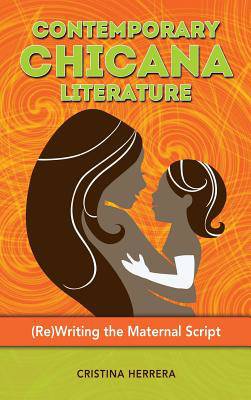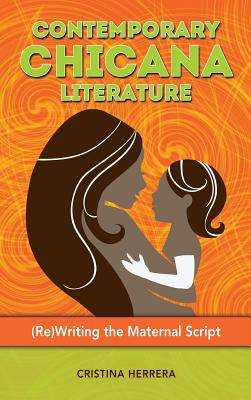
- Retrait gratuit dans votre magasin Club
- 7.000.000 titres dans notre catalogue
- Payer en toute sécurité
- Toujours un magasin près de chez vous
- Retrait gratuit dans votre magasin Club
- 7.000.000 titres dans notre catalogue
- Payer en toute sécurité
- Toujours un magasin près de chez vous
Contemporary Chicana Literature
(Re)Writing the Maternal Script
Cristina Herrera
Livre relié | Anglais
169,45 €
+ 338 points
Description
Despite the growing literary scholarship on Chicana writers, few, if any, studies have exhaustively explored themes of motherhood, maternity, and mother-daughter relationships in their novels. When discussions of motherhood and mother-daughter relationships do occur in literary scholarship, they tend to mostly be a backdrop to a larger conversation on themes such as identity, space, and sexuality, for example. Mother-daughter relationships have been ignored in much literary criticism, but this book reveals that maternal relationships are crucial to the study of Chicana literature; more precisely, examining maternal relationships provides insight to Chicana writers' rejection of intersecting power structures that otherwise silence Chicanas and women of color. This book advances the field of Chicana literary scholarship through a discussion of Chicana writers' efforts to re-write the script of maternity outside of existing discourses that situate Chicana mothers as silent and passive and the subsequent mother-daughter relationship as a source of tension and angst. Chicana writers are actively engaged in the process of re-writing motherhood that resists the image of the static, disempowered Chicana mother; on the other hand, these same writers engage in broad representations of Chicana mother-daughter relationships that are not merely a source of conflict but also a means in which both mothers and daughters may achieve subjectivity. While some of the texts studied do present often conflicted relationships between mothers and their daughters, the novels do not comfortably accept this script as the rule; rather, the writers included in this study are highly invested in re-writing Chicana motherhood as a source of empowerment even as their works present strained maternal relationships. Chicana writers have challenged the pervasiveness of the problematic virgin/whore binary which has been the motif on which Chicana womanhood/motherhood has been defined, and they resist the construction of maternity on such narrow terms. Many of the novels included in this study actively foreground a conscious resistance to the limiting binaries of motherhood symbolized in the virgin/whore split. The writers critically call for a rethinking of motherhood beyond this scope as a means to explore the empowering possibilities of maternal relationships. This book is an important contribution to the fields of Chicana/Latina and American literary scholarship.
Spécifications
Parties prenantes
- Auteur(s) :
- Editeur:
Contenu
- Nombre de pages :
- 248
- Langue:
- Anglais
Caractéristiques
- EAN:
- 9781604978759
- Date de parution :
- 28-03-14
- Format:
- Livre relié
- Format numérique:
- Genaaid
- Dimensions :
- 152 mm x 229 mm
- Poids :
- 535 g







